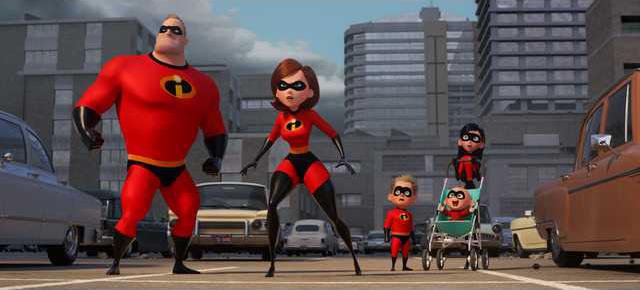Fans wont have to wait too much longer to see another trailer for The Incredibles 2.
According to comicbook.com, Disney/Pixar will release a special look which could be a full trailer for the second Incredibles film during Olympic coverage this Wednesday, Feb. 14.
The upcoming special look will show a glimpse of the Parr family, picking up where the original film left off 14 years ago. In the upcoming film, the family will have to deal with a supervillain named the Underminer.
A teaser aired earlier during Olympic coverage that promoted the upcoming inside look.
The movies first teaser dropped November 2017, according to the Deseret News, showing the baby superhero Jack-Jack giggling over his new superpowers. Rumors suggested that the second trailer would debut during the Super Bowl.
"('The Incredibles 2') starts right as the first one finishes, so it just carries on," John Lasseter, Pixars chief creative officer, told IGN. "A minute will have passed. It starts with the Underminer and a big old set piece. You know that at the end of the first movie when he comes up and you see the family dressed as superheroes, well, that's where we start this movie."
According to comicbook.com, Disney/Pixar will release a special look which could be a full trailer for the second Incredibles film during Olympic coverage this Wednesday, Feb. 14.
The upcoming special look will show a glimpse of the Parr family, picking up where the original film left off 14 years ago. In the upcoming film, the family will have to deal with a supervillain named the Underminer.
A teaser aired earlier during Olympic coverage that promoted the upcoming inside look.
The movies first teaser dropped November 2017, according to the Deseret News, showing the baby superhero Jack-Jack giggling over his new superpowers. Rumors suggested that the second trailer would debut during the Super Bowl.
"('The Incredibles 2') starts right as the first one finishes, so it just carries on," John Lasseter, Pixars chief creative officer, told IGN. "A minute will have passed. It starts with the Underminer and a big old set piece. You know that at the end of the first movie when he comes up and you see the family dressed as superheroes, well, that's where we start this movie."








